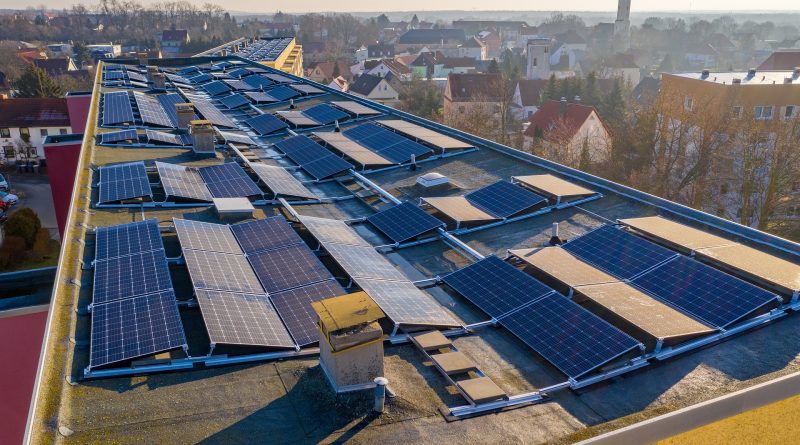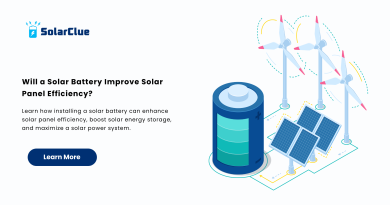Unlocking the Advantages of On-Grid Solar Systems
Advantages of On-Grid Solar Systems
With rising awareness about environmental sustainability and the increasing demand for renewable energy sources, solar power has become an attractive option for many homeowners and businesses alike. Among the various solar energy systems available, on-grid solar systems have gained significant popularity in recent years. These systems are designed to connect directly to the local power grid, offering numerous advantages over off-grid solar systems. In this blog, we will explore the benefits of on-grid solar systems and shed light on why they are becoming the preferred choice for those seeking to harness the power of the sun.
Table of Contents
1. Cost-effectiveness and Return on Investment
One of the primary advantages of on-grid solar systems is their cost-effectiveness. Unlike off-grid systems that require expensive battery storage systems to store excess electricity, on-grid systems allow users to sell surplus power back to the grid. This arrangement results in reduced electricity bills and, in some cases, even generates revenue through net metering programs. Such programs enable users to receive credits for the excess electricity they generate, which can be used to offset future energy bills. Consequently, on-grid solar systems offer a faster return on investment compared to their off-grid counterparts.
2. Simplified Maintenance and Reliability
On-grid solar systems are renowned for their low maintenance requirements, making them an attractive option for homeowners and businesses alike. Since these systems are connected to the grid, they do not rely entirely on stored energy from batteries. This eliminates the need for expensive battery replacements and other associated maintenance costs. Moreover, on-grid systems typically come with warranties that ensure hassle-free servicing and repairs, guaranteeing their reliability for an extended period.
3. Availability of Subsidies and Incentives
Governments worldwide are actively encouraging the adoption of solar energy by offering subsidies and incentives for installing on-grid solar systems. These incentives often include tax rebates, grants, and other financial support, making the initial investment more affordable. Additionally, some regions provide high feed-in tariffs, i.e., paying solar power producers a premium for the electricity they generate, further enhancing the financial viability of on-grid solar systems. By taking advantage of these subsidies and incentives, individuals and businesses can significantly reduce the overall cost of installing and maintaining solar systems.
4. Grid Dependence and Power Stability
While off-grid solar systems provide energy independence, they also require homeowners or businesses to completely rely on their solar power and battery storage. This can be a drawback during long periods of cloudy weather or high electricity consumption when the stored energy may prove inadequate. On the contrary, on-grid solar systems resolve this issue by allowing users to seamlessly switch to grid electricity whenever needed. This ensures a consistent power supply, eliminating any concerns about running out of electricity during times of high demand or inclement weather.
5. Environmental Impact and Carbon Footprint Reduction
On-grid solar systems play a crucial role in reducing the environmental impact of electricity generation. By harnessing clean and renewable solar energy, these systems significantly decrease the reliance on fossil fuels, which are responsible for harmful greenhouse gas emissions. Using solar power helps combat climate change and reduce carbon footprints, making it a sustainable choice for a greener future. With the ability to generate clean electricity for decades, on-grid solar systems provide long-lasting environmental benefits to both individuals and communities.
In conclusion, experience a sustainable energy shift with SolarClue’s on-grid solar systems. Connected seamlessly to the utility grid, these systems guarantee a consistent power supply, eliminating the need for extensive energy storage. Benefit from net metering, reduce bills and contribute to sustainability. Tailored for both residential and commercial needs, SolarClue® ensures prompt installations, guidance on government incentives, and advanced monitoring solutions. Optimize your energy consumption and join us on the journey toward a cleaner, more efficient energy landscape. Contact SolarClue® today and unlock the advantages of on-grid solar systems for a brighter and greener future.
On-grid systems are connected to the utility grid, enabling seamless exchange of electricity between solar panels and the grid.
In sunlight hours, solar panels generate electricity, with excess sent to the grid. During non-sunlight hours, power is drawn from the grid as needed.
On-grid systems ensure a constant power supply, utilizing the grid as a virtual storage facility and eliminating the need for extensive energy storage.
Standard on-grid systems shut down during outages for safety. However, hybrid systems with backup capabilities can provide uninterrupted power.
Net metering allows users to receive credits for surplus electricity sent back to the grid, potentially reducing future utility bills.
Yes, businesses benefit by reducing operational costs and contributing to sustainability through on-grid solar solutions.
SolarClue® guides users to maximize benefits from available government incentives, enhancing the financial appeal of on-grid systems.
Absolutely. SolarClue® offers tailored solutions for residential and commercial spaces, ensuring efficient energy production aligned with diverse requirements.
Installation times vary but are generally efficient. SolarClue® ensures prompt and professional installations for a seamless transition to clean energy.
SolarClue® provides advanced monitoring solutions, empowering users to track and optimize system performance remotely for increased efficiency.



